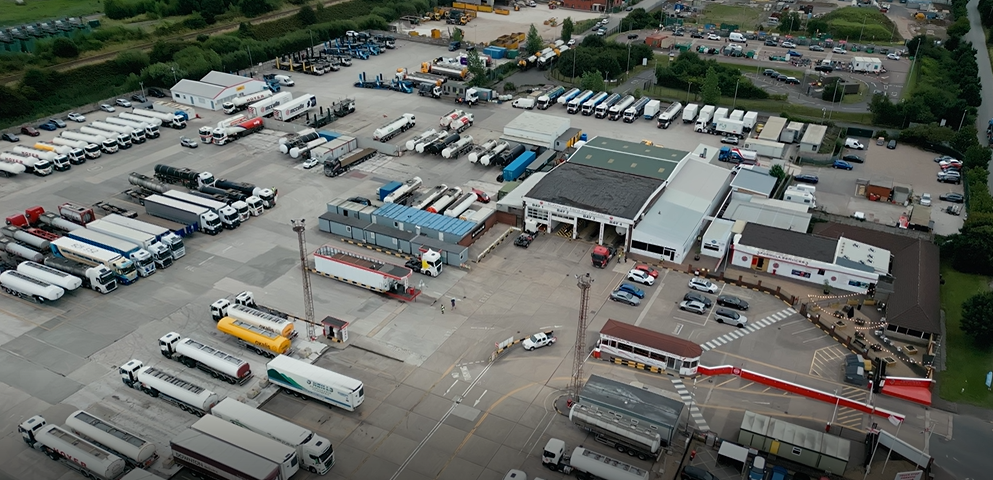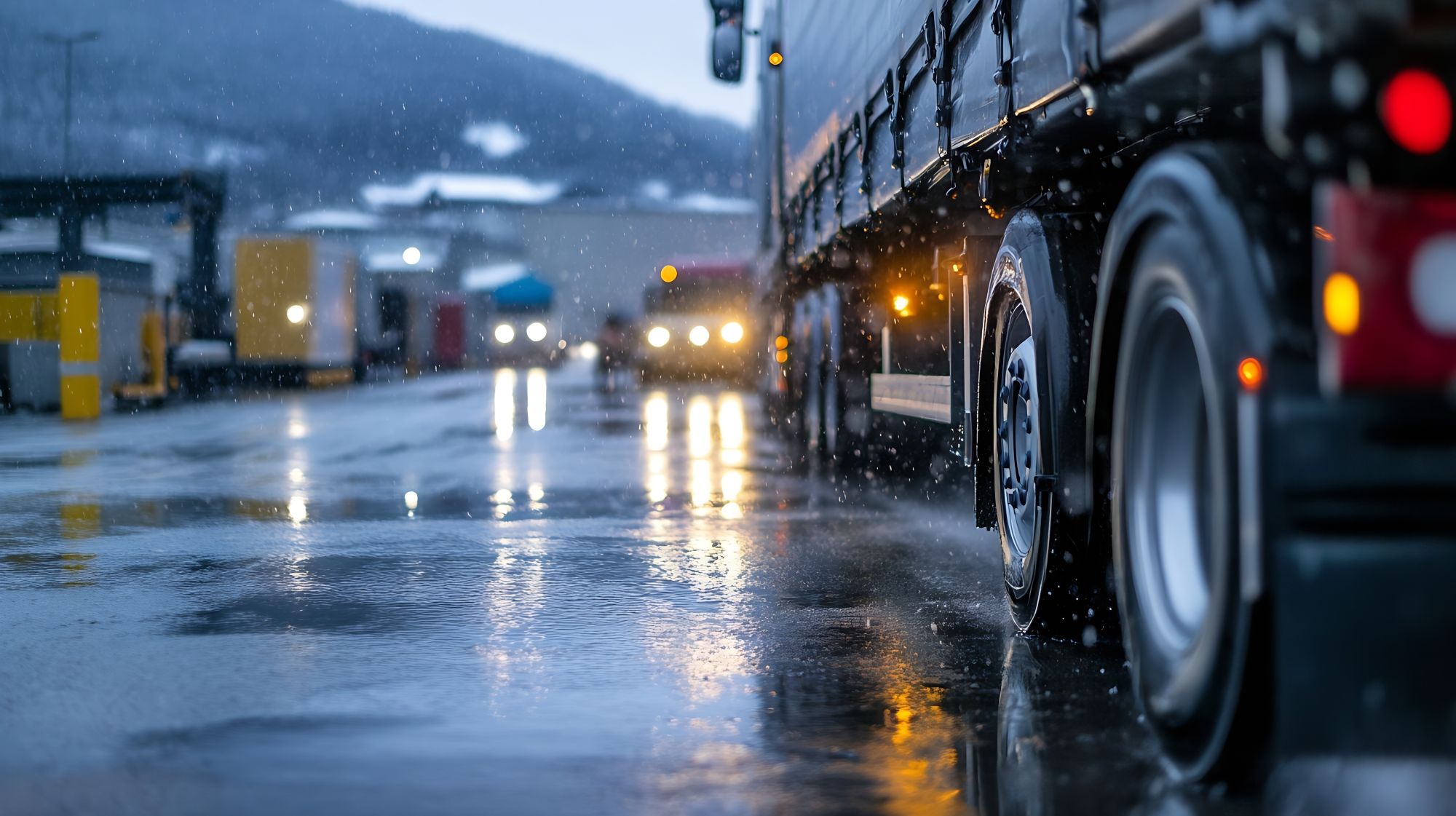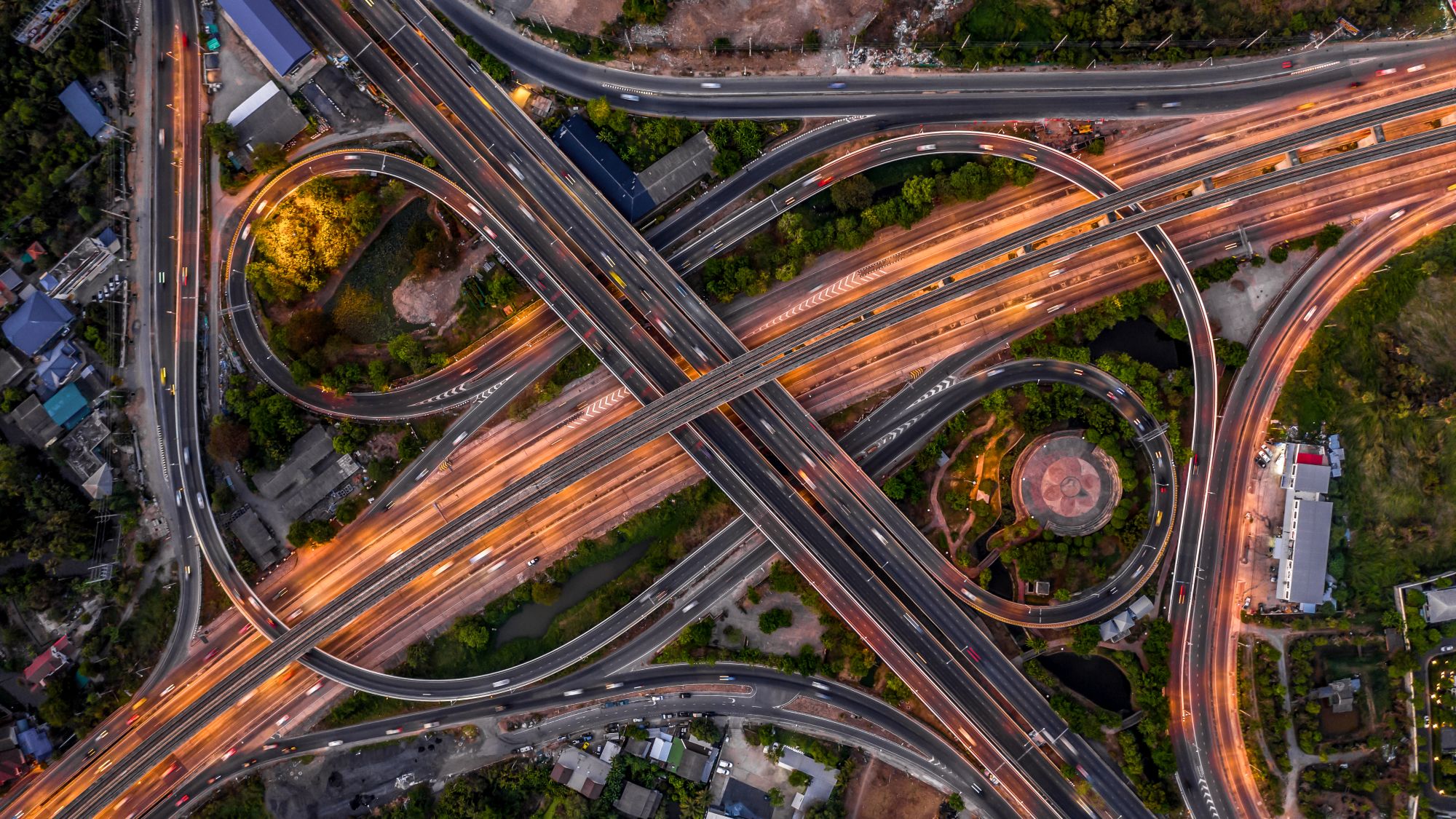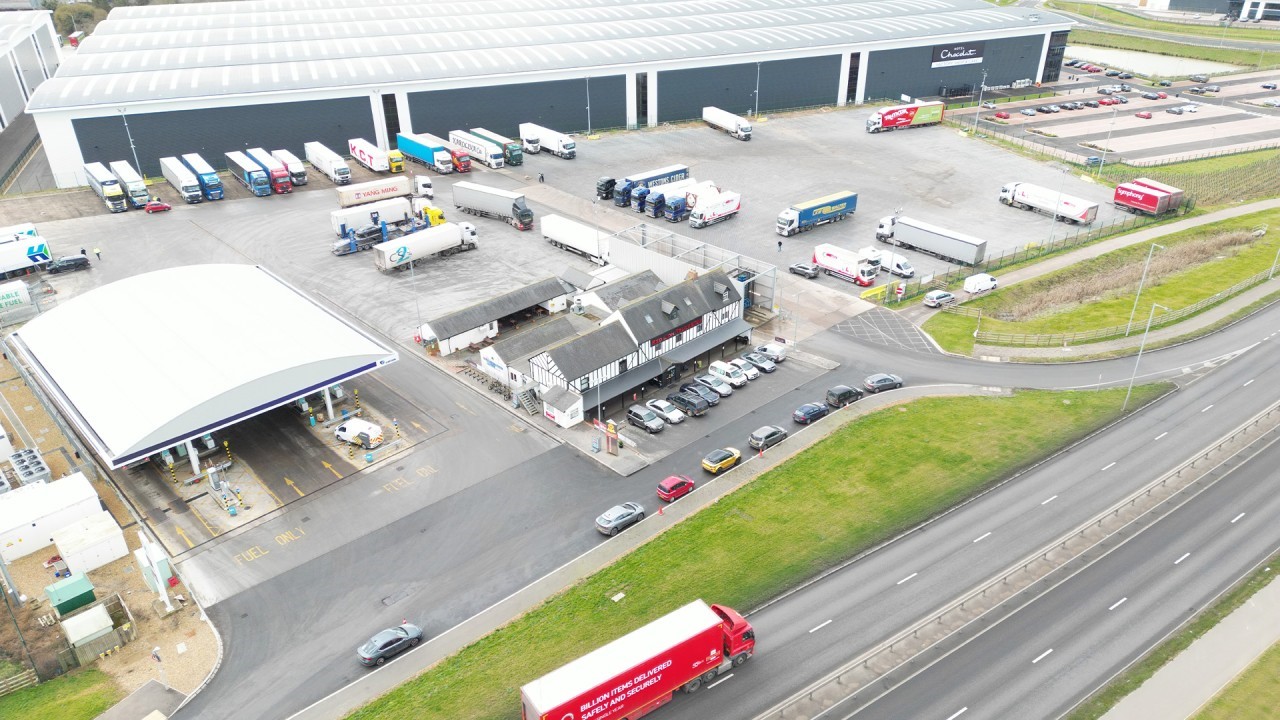
Susie Jones
A central de camionagem Red Lion - Um modelo de sucesso
Criado: 28/08/2024
•
Atualizado: 28/08/2024
A apenas 200 metros da M1, na junção 16, situa-se a paragem de camiões Red Lion. Fundada há mais de 30 anos, a Red Lion tornou-se o destino de eleição dos condutores. Descrito como o paraíso dos camionistas, o seu ambiente comunitário, a comida deliciosa e a vasta gama de instalações fazem desta paragem premiada uma das suas favoritas. O operador do local, Ali Sadrudin, fala-nos do local.
"O local pode acolher mais de 200 camiões por noite. Existe uma estação de abastecimento de combustível de alta velocidade, que não só fornece gasóleo e AdBlue, mas também gás natural comprimido (GNC). Existe também um novo posto de lavagem de camiões com 3 escovas. O edifício de lazer tem um restaurante e um bar, uma loja de acessórios para camiões, uma lavandaria, um centro de jogos, caixas multibanco, chuveiros e casas de banho assistidas e espaços para eventos e reuniões."
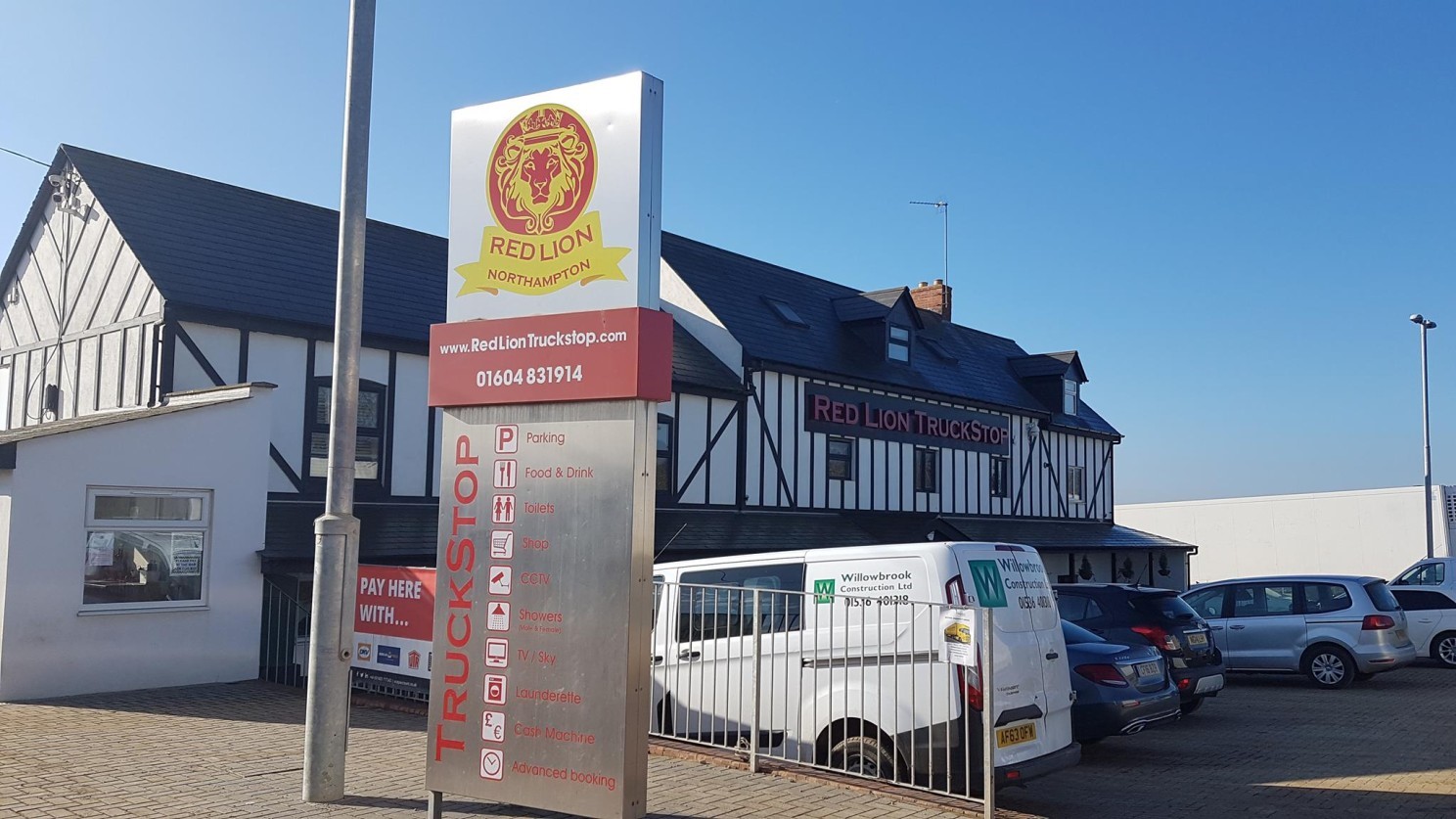
Instalações
Alguns podem ver as paragens de camiões apenas como um local de descanso para os condutores, mas estas também desempenham um papel crucial na melhoria do bem-estar dos condutores. Na SNAP, sabemos que é imperativo fornecer aos condutores instalações limpas. Mas de que mais precisam os camionistas?
"Acredito que os clientes estão à procura do básico, mas bem feito. Boa comida, instalações limpas e segurança para os seus veículos e cargas. Se conseguir fornecer isto, terá clientes satisfeitos e recorrentes", afirma Ali.
Uma rápida vista de olhos na página do Red Lion no Facebook diz-nos que eles seguem certamente este mantra, e está a funcionar. Comentários como "excelente paragem de camiões, a melhor do país" e "possivelmente uma das melhores paragens de camiões em Inglaterra" apoiam as mais de 4.000 críticas positivas do Google.
Segurança e proteção
No entanto, as refeições deliciosas e as instalações limpas não são as únicas coisas em que Ali e a sua equipa se concentram. Eles também levam a segurança muito a sério. Em 2020, estimou-se que, no Reino Unido, houve mais de 4.000 crimes contra veículos pesados, fretes e cargas - resultando em um custo de £ 250 milhões para o Reino Unido. Locais como o Red Lion introduziram medidas de segurança para reduzir este número.
Ali afirma que "o SNAP ajudou-nos a obter a certificação TAPA PSR Nível 3". Em fevereiro de 2023, o The Red Lion foi galardoado com o prémio Park Mark Freight. Ali fala-nos sobre as medidas de segurança que foram tomadas para alcançar este prémio.
"O local é um local seguro desde a conceção. Temos guardas 24 horas por dia, 7 dias por semana, que patrulham o local, com um terceiro a monitorizar o CCTV. Temos uma vedação ininterrupta de 3 m à volta do local, com câmaras fixas a olhar para todos os pontos da mesma, para que se possa detetar quaisquer entradas não autorizadas ou danos nos painéis da vedação. O local também está totalmente iluminado de acordo com os níveis de lux exigidos pela polícia, com câmaras de deteção de movimento estrategicamente colocadas à volta do local para detetar qualquer movimento não autorizado e garantir que todas as partes do local estão sob vigilância. Sistema ANPR para registar as matrículas que entram e saem do local, e um alerta de resposta rápida com a polícia, caso seja necessário contactá-la."
O Red Lion também tomou medidas adicionais para garantir que as condutoras se sintam confortáveis e seguras durante as suas visitas. Estão disponíveis comodidades como duches, casas de banho e vestiários para mulheres. Estas medidas não passaram despercebidas, uma vez que, em janeiro de 2023, a paragem de camiões foi nomeada uma paragem de camiões de topo no Reino Unido para mulheres condutoras de veículos pesados de mercadorias.
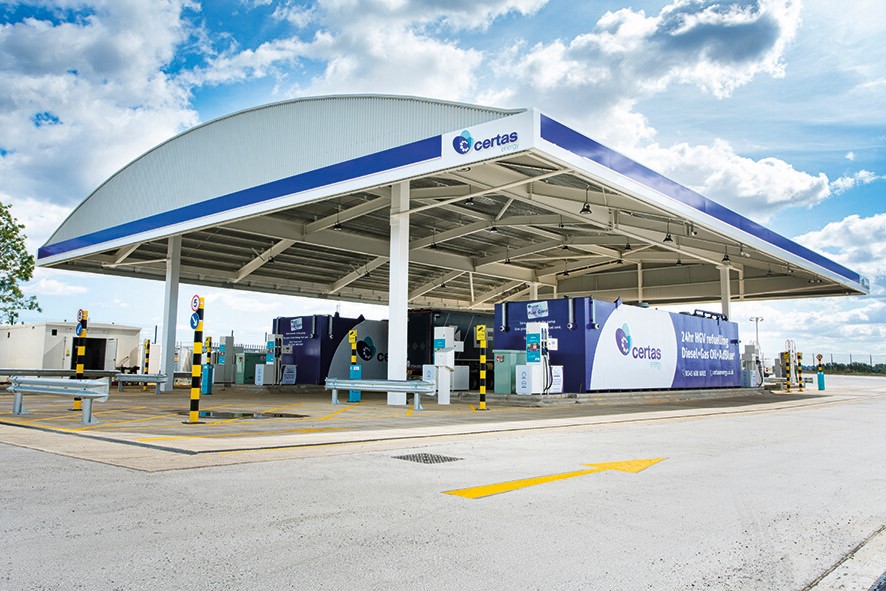
Receitas e expansão
Um dos muitos benefícios para os gestores de locais que utilizam o SNAP é a melhoria da rentabilidade e da otimização. Como cliente fundador da SNAP, Ali explica como a SNAP trouxe receitas adicionais para a empresa desde a sua adesão em 2009.
"Foi um processo gradual ao longo dos anos, no entanto, uma vez que os hábitos de consumo dos condutores estão a mudar continuamente e a tornar-se sem dinheiro, posso imaginar que um novo sítio que aceitasse o SNAP teria um retorno imediato. Cerca de 65% das receitas totais do sítio provêm do SNAP."
As coisas mudaram muito no sector desde 2009. Ali explica como o sítio teve de se adaptar à evolução do sector e ao aumento da procura.
"Inicialmente, o local só podia acomodar 130 veículos pesados de mercadorias por noite, mas em 2018 o local foi alargado para mais de 200 para acomodar o aumento da procura", afirma Ali. Para os condutores e frotas que utilizam o SNAP, esses 200 espaços tornam-se facilmente reserváveis.
Apenas quatro anos depois, o local viu mais expansão com a introdução de uma nova instalação de lavagem de camiões. Inaugurada em novembro de 2022, a lavagem de camiões com três escovas de última geração é adequada para a maioria dos LGVs.
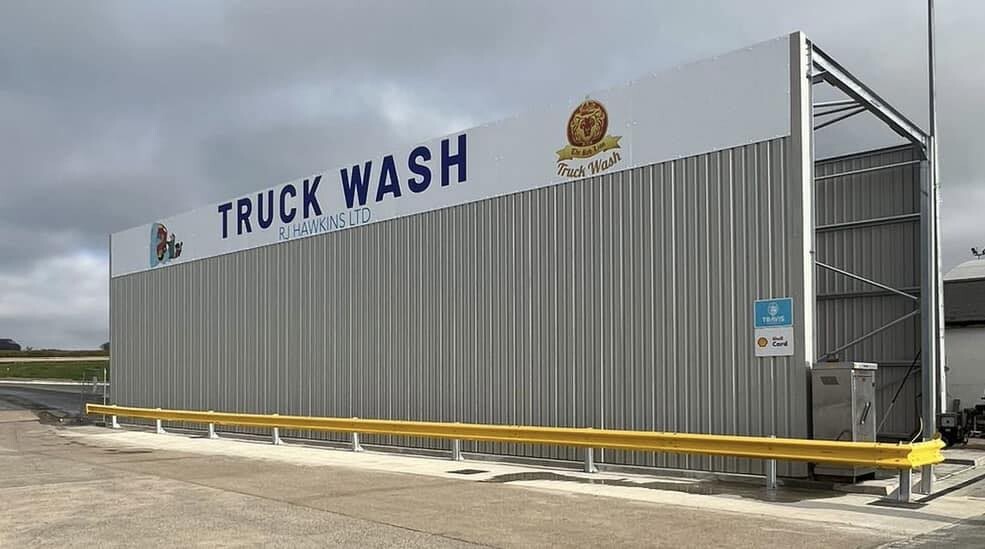
Aderir à SNAP como parceiro de serviços
A adesão à SNAP coloca a sua localização à frente de 160.000 condutores e 7.000 frotas. Para as paragens de camiões, como o Red Lion, que se esforçam constantemente por oferecer novas iniciativas e instalações aos seus clientes, o SNAP oferece a oportunidade de o fazer.
"O SNAP permitiu que o site oferecesse um método de pagamento alternativo que só pode beneficiar o cliente e atraí-lo para o site", diz Ali.
As vantagens da SNAP
Mais de 160.000 condutores utilizam a conta SNAP. Por conseguinte, é essencial manter padrões elevados. Embora os parceiros de serviços que aceitam pagamentos da Conta SNAP sejam empresas independentes, analisamos cada sítio e garantimos que cumprem os nossos padrões. Além disso, a nossa equipa de rede está disponível sempre que necessário.
"A SNAP sempre nos apoiou desde a primeira vez que aderimos", afirma Ali.
Quando questionado sobre o que a SNAP tem de melhor para eles, Ali afirma: "é o nível de serviço, eles foram muito além para adaptar o sistema de emissão de bilhetes às nossas necessidades".
E o seu conselho para os proprietários de parques de camiões que estão a pensar em abrir as suas instalações aos condutores SNAP?
"Faça-o! Porque é que não quereria trazer mais clientes para o seu site?
Inscrever-se no SNAP
Para melhorar a sua rentabilidade e otimizar as operações do seu sítio, dirija-se a snapacc.com.
